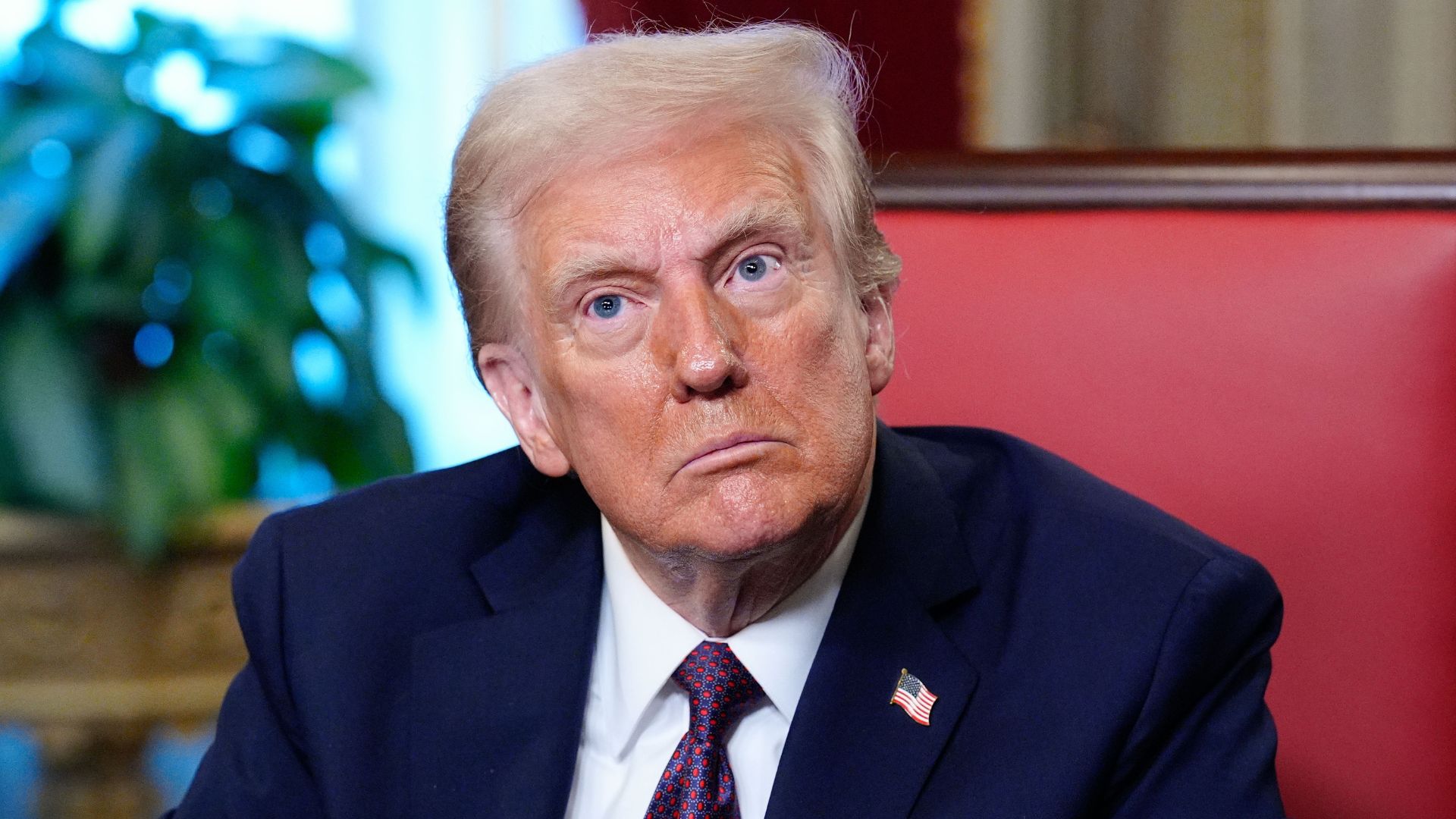President Donald Trump is prepared to veto a bipartisan Senate bill that would place new limits on the executive branch’s authority to impose tariffs, according to a White House statement obtained by Axios.

The legislation, introduced last week by Sens. Maria Cantwell (D-Wash.) and Chuck Grassley (R-Iowa), would require congressional oversight for any new or increased tariffs imposed by the president.
“President Trump would veto a bill introduced by Sens. Maria Cantwell (D-Wash.) and Chuck Grassley (R-Iowa) that would limit the president’s authority to unilaterally impose tariffs”
BEAUTIFUL 😎🔥 pic.twitter.com/PKyHVTz6xr
— Spitfire (@DogRightGirl) April 7, 2025
Elon Musk Called This Financial News ‘Terrifying’
The proposal comes amid heightened attention to U.S. trade policy and follows a series of tariff measures initiated by President Trump since returning to office.
“If passed, this bill would dangerously hamper the President’s authority and duty to determine our foreign policy and protect our national security,” the White House stated in a formal policy memo sent to congressional offices.
“If S. 1272 were presented to the President, he would veto the bill.”
This bill would dangerously hamper the President’s authority and duty to determine our foreign policy and protect our national security. pic.twitter.com/tbpkNrC5Jv
— Office of Management and Budget (@WHOMB) April 7, 2025
FREE Concealed Carry Gun Laws & Reciprocity Map
The proposed legislation would require the president to submit a notification to Congress within 48 hours of imposing or increasing any tariff on goods imported into the United States.
That notification must include the reasoning behind the tariff and an assessment of its potential impact on American businesses and consumers.
Under the bill’s provisions, Congress would then have 60 days to vote on whether to approve or reject the tariff.
If no action is taken within that time frame, the duty would expire automatically. The legislation would also authorize lawmakers to reverse existing tariffs at any time.
“For too long, Congress has delegated its clear authority to regulate interstate and foreign commerce to the executive branch,” said Grassley in a statement supporting the bill.
Cantwell added, “Trade wars can be as devastating, which is why the Founding Fathers gave Congress the clear Constitutional authority over war and trade.”
The measure has received support from some Republican lawmakers. Sen. Thom Tillis (R-N.C.) noted, “I like congressional review … In trade, it’s a good example.”
Despite that support, the bill faces a difficult path forward.
To override a presidential veto, both the House and Senate would need to approve the legislation with a two-thirds majority.
That would require at least 290 votes in the House and 67 in the Senate.
Even with full Democratic support, at least 77 Republican representatives and 19 Republican senators would need to vote for the bill to override a veto.
Historically, only about 10% of presidential vetoes have been overridden by Congress.
Although some lawmakers may support increased congressional oversight of trade measures, the political reality is more complex.
President Trump remains highly popular among Republican voters, and many GOP lawmakers are unlikely to risk opposing a central part of his economic strategy.
The veto threat suggests the president has no intention of ceding tariff authority. Trump has emphasized tariffs as a core component of his trade agenda, using them in negotiations with allies and competitors alike.
Any effort to limit that authority would face strong resistance from the administration.
For now, absent a two-thirds vote in both chambers, President Trump’s authority to impose and adjust tariffs remains intact.
American Made Patriotic Apparel – Save 15% with Promo Code MERICA

![Vows to Veto Senate Power Grab on Tariffs [WATCH]](https://www.right2024.com/wp-content/uploads/2025/04/1744131026_Vows-to-Veto-Senate-Power-Grab-on-Tariffs-WATCH-750x375.jpg)


![Jasmine Crockett Justifies Mass Illegal Immigration With Bizarre Argument [WATCH]](https://www.right2024.com/wp-content/uploads/2025/03/1742007023_Jasmine-Crockett-Justifies-Mass-Illegal-Immigration-With-Bizarre-Argument-WATCH-350x250.jpg)


![NYC Tourist Helicopter Falls into Hudson River, Siemens Executive and Family Among Those Killed [WATCH]](https://www.right2024.com/wp-content/uploads/2025/04/NYC-Tourist-Helicopter-Falls-into-Hudson-River-Siemens-Executive-and-350x250.jpg)









